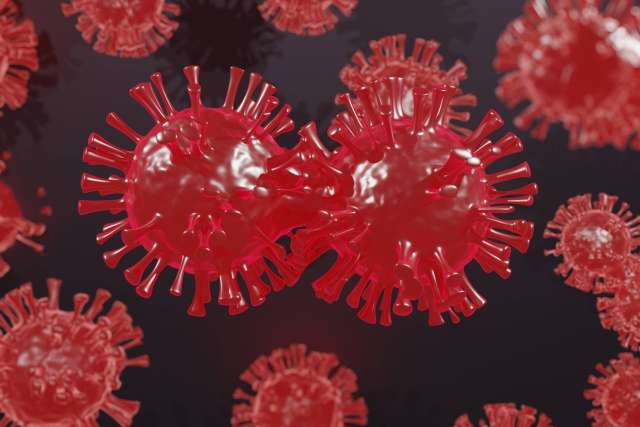The variant strain of coronavirus that led to new lockdowns in London and requires travelers from the U.K. to prove they are coronavirus-free before visiting the U.S. has scientists on alert on both continents.
Viruses mutate all the time, says Annabelle De St. Maurice, MD, MPH, co-chief infection prevention officer at UCLA Health. What makes this mutated variant of SARS-CoV-2, the virus that causes COVID-19, concerning is its presence in the majority of new infections in London, leading scientists to wonder whether it’s a more infectious strain, Dr. De St. Maurice says.
On Dec. 29, health officials in Colorado identified the first infection caused by the variant strain in the U.S., in a Denver patient, and on Dec. 30, California Gov. Gavin Newsom said the strain had been identified in Southern California. The variant also has been found in Canada, Italy, India and the United Arab Emirates.
As of Jan. 6, 52 cases of the variant had been identified in the U.S., 26 of those cases in California.
So what does this mean for you — and for the vaccines many hope will bring an end to the pandemic? Dr. De St. Maurice breaks it down.
What do we mean when we say the coronavirus is mutating?
What it means is that there are differences in the genetic material – in this case, RNA – of the virus that can be detected that are different from what has been detected previously. The thing about corona viruses in general is that they mutate a lot. And mutations just occur because some viruses have sloppy replication, which means the enzymes that help them make more copies of themselves aren't the most detail-oriented. So sometimes they make mistakes … and then you might get viruses that are better adapted to transmit more easily or to survive in the animal host, or human host if it was an animal virus. That’s likely how some of these viruses evolved: It may have been a virus that was adapted to one type of animal host, and then through multiple series of genetic mutations where there are these errors that occur in replication, you end up with one mutant virus that's just different enough to spread more easily.
So is viral mutation forever ongoing?
It can happen as long as the virus is making copies of itself – you can have different mutations that occur. So it really varies based on the ability of the virus to make these changes. According to the Centers for Disease Control and Prevention, there's one mutation every two weeks estimated in the SARS-CoV-2 virus. So it's pretty common. I think these clinically significant mutations seem to be identified less frequently. More often than not, those mutations occur and there's no change in the virus, there's no change in how it behaves, but this appears to maybe have some potential for clinical significance.
How are viral mutations identified?
Genetic sequencing is how scientists determine that a mutation has occurred. Just like when this virus was first identified, sequencing was done to determine what kind of virus it was. It’s the same with mutations. A coronavirus test would just tell you that it’s a SARS-CoV-2 virus; it won’t specify that this is one mutant virus or another. Sequencing actually looks at every single piece of RNA and coding for that virus, like making a detailed map of its genetic material. It takes a lot more time, it's a lot more expensive and requires more effort. There is some sequencing that's ongoing at the CDC in the U.S. In November, the CDC started the National SARS-CoV-2 Strain Surveillance program to look at evolving virus characteristics, where they get 10 samples every week from different states and they will be doing further characterization to identify different variants.
Would someone infected with a mutant strain of coronavirus know it?
No. It doesn't appear that there’s evidence to suggest that it’s more severe or that there are differences in symptoms, so you wouldn't know unless you went and had sequencing of the virus. And there's no reason for individuals to necessarily worry about that — it's more scientists and public health officials who need to be the ones focusing their efforts on trying to reduce the spread and make sure our vaccines and therapeutics are still effective, and that we can still diagnose it appropriately.
Will the new vaccines still work on this new mutant strain?
It doesn't seem as though there's any impact potentially on the effectiveness of vaccine. Vaccines cause the body to make antibodies against multiple parts of the spike protein (on the outside of the coronavirus), so even if there's a mutation in the spike protein, unless it modifies it to such an extent that one's antibodies or T-cells wouldn't recognize it, we think that the vaccine would still be effective. It doesn’t appear, at least at this time, that any of the mutations would suggest that the vaccine isn’t effective. But that’s why we need to do the sequencing, to determine whether or not more variants are occurring. Scientists are continuing to study this variant and our knowledge about its potential impacts could change.
How can we protect ourselves from this new variant? Is it still about masks, hand-washing and social distancing?
One thing that we can learn from this is that when there’s more transmission of virus in general, then that leads to more opportunities for the virus to mutate. So the main way you can protect yourself from having a mutant virus or from the virus mutating for others is really preventing transmission, because the less the virus has the opportunity to replicate and to transmit, the better off we’ll all be.
Related articles
A year of the coronavirus: From a hint of something in China, to a full-blown global pandemic
Neurological, psychological complications from COVID-19 can linger long after recovery




